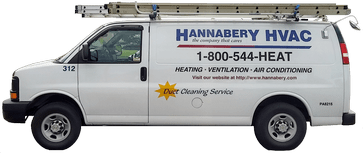Is Your HVAC System Getting Old?
Should I Repair or Replace...
Call Us Today!
Should you repair or replace your HVAC system?
Maybe you're facing an expensive repair bill. Maybe you haven't been as comfortable as you would like to be. Or maybe your energy bills are considerably higher than last year. Maybe you need a new cooling or heating system.
Unless your system has completely stopped working, the decision to replace it is not always an easy one. As you evaluate your system, knowing what to look for helps. Here are several warning signs to consider as you make your decision.
What To Look For:
- Age of System... According to industry averages, an air conditioning system should last at least 12 to 15 years, and a furnace - 14 to 20 years, as long as a qualified technician performs regular maintenance and service. If your current system is approaching the lower end of its lifespan, it might be wise to investigate the benefits of a new system.
- Frequent Repairs... Frequent repairs on an aging system might indicate it's time to replace the system, especially if the repairs are becoming progressively more expensive. The repairs may be a result of the age of your system or a system that is overworked because it is sized improperly. A professional technician should be able to tell you whether replacing a part will solve a problem, or if it makes more sense to replace the entire system. Keep in mind, the money you save in repairs can help offset the cost of a new system.
- System Efficiency... The Seasonal Energy Efficiency Ration (SEER) measures the cooling efficiency of a heat pump or an air conditioner. Generally speaking, the higher the SEER, the more efficient the system. Today's new air conditioning systems are more than 50 percent more efficient than systems manufactured 10 years ago. Furnaces are also much more efficient than they used to be. So, if you are concerned about utility bills and are faced with an expensive repair, you may want to look at the energy savings a new system offers.
- Uneven Temperatures... Weak or poor airflow through your vents could mean your blower motor is failing or the fan or coil is very dirty, while hot and cold spots in a home might be a problem with your duct work.
- Loud Noises... Excessive noise could signal your system is working too hard to keep up with the cooling or heating demands of your home. If the noise only happens when the system starts up or shuts down, it might indicate a problem with the system compressor. A grinding noise often means that bearings in the fan motor are bad or need lubrication, and loud rattling noises can be the result of debris caught in the fan blades. In any case, a technician should be able to locate the source of the noise and assess the severity of the problem.
- Humidity Problems... Poor equipment operation, inadequate equipment or leaky ductwork can cause air to be too dry in the winter and too humid in the summer. Excessive humidity levels are cause for concern and should be shared with your technician.
- Starting and Stopping... A system that turns on and off frequently, quickly reaching the desired temperature, but not maintaining it, may be too big for your home. Conversely, one that runs constantly may be too small. The results of an improperly sized system include high energy bills and poor humidity control.
- Excessive Dust... Leaky ducts can pull particles and air from attics, crawl spaces and basements, and distribute them throughout your home. Sealing your ducts rather than replacing your mechanical system may be a solution.
- High Energy Bills... Check your monthly energy bills to see how they compare to the same period of time last year. A significant increase may indicate a change in the operating efficiency of your system. A new, more efficient system will most likely result in savings that can be applied to the cost of a new system.
Each of these warning signs should trigger a call to your local HVAC contractor. A technician can examine your equipment and ductwork and help determine whether the problem can be easily corrected or if you should seriously consider replacing your system with a newer, more efficient cooling system.
Of course you can always use the 5000 RULE...
Multiply the age of your equipment by the cost of the repair, and if it exceeds $5,000, then you should replace your system. If it's less, go ahead and repair it.
Example: Your 10-year old system needs a $300 repair. 10 x $300 = $3,000. Repair it!
Please contact our office for more information or for any questions you may have. Our service coordinators are available to personally assist you during our normal business hours of 8:00 am - 5:00 pm, Monday through Friday.
How Comfortable Do You Want To Be?
[Must be in our service area]

